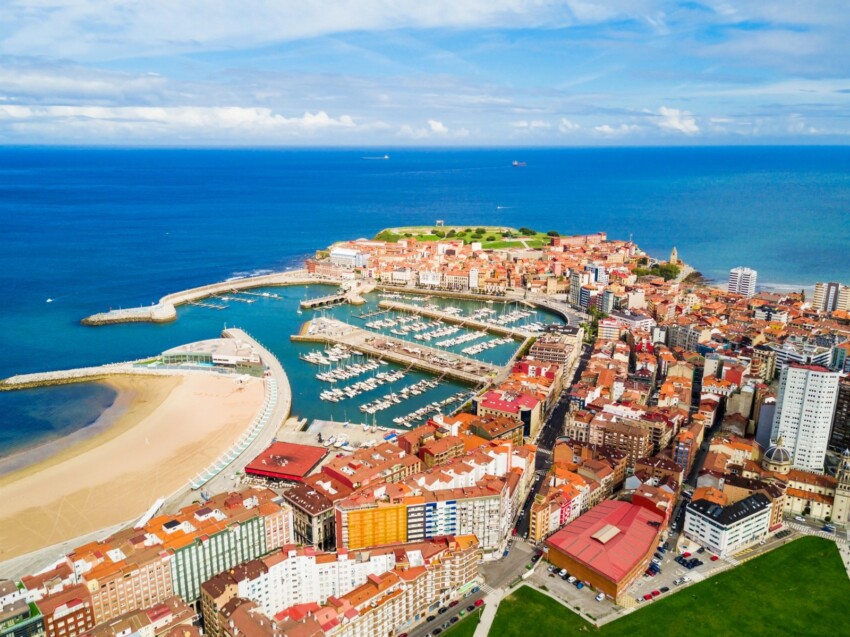

The largest city in Asturias surprises with its liveliness. Gijón does not shine with charm, scenic views or attractions of international appeal: its appeal lies in its simplicity and ability to enjoy life. A former industrial centre, it has been revitalised with pedestrian streets, parks, waterfront promenades and the opening of new museums and cultural attractions and has become one of the most popular resorts in northern Spain.
There are plenty of opportunities for entertainment, both day and night, and one can easily see a day slip away between beach, shopping and drinks. But even the easy-going Gijón hides a romantic heart: the most picturesque part of this bustling coastal city is Cimadevilla, the old fishermen’s quarter; south of Cimadevilla lies an area full of 19th and early 20th century buildings.
You can go much further back in time by visiting the Roman baths or cast your gaze into infinity by admiring a dubious statue that has become the city’s emblem.
Gijón is a city that knows how to surprise visitors with a perfect balance of maritime history, contemporary culture and outdoor life. Its attractions range from ancient Roman vestiges to modern art installations, offering different experiences for every type of traveller.
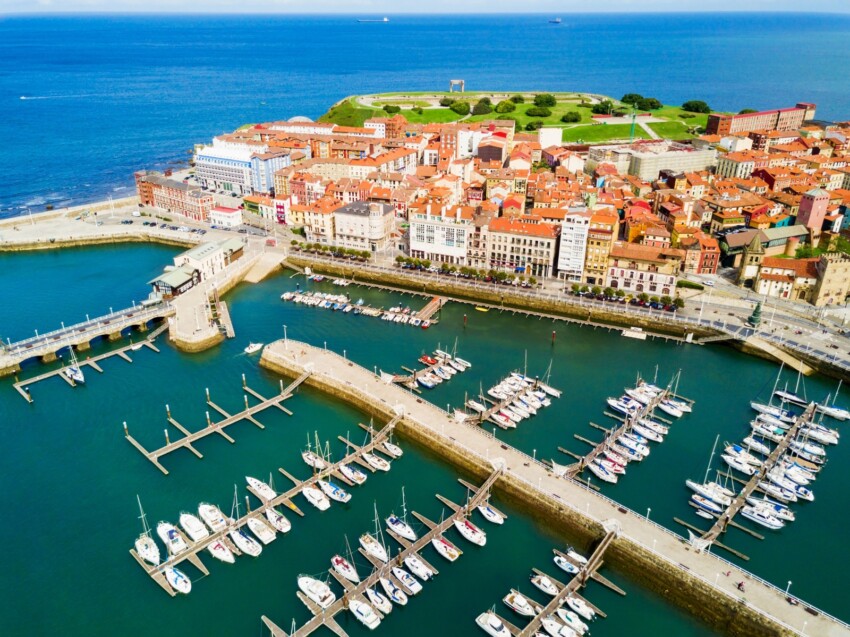
The historic district of Cimadevilla is the beating heart of ancient Gijón. This picturesque fishing village, perched on a promontory jutting out into the Cantabrian Sea, retains its medieval charm with narrow cobbled streets and traditional houses with flowered balconies.
The area is dominated by the Revillagigedo Palace, an imposing 17th century Baroque building that now houses an international cultural centre. Strolling through its streets, one breathes in the authentic atmosphere of Asturian maritime life, among small craft shops and traditional cider houses where one can taste the local cider poured in the characteristic ‘de escanciado’ way.
At the top of the district, the Cerro de Santa Catalina offers a breathtaking view of the city and the sea, and is embellished by Eduardo Chillida’s monumental sculpture ‘Elogio del Horizonte’, which has become a modern symbol of Gijón.
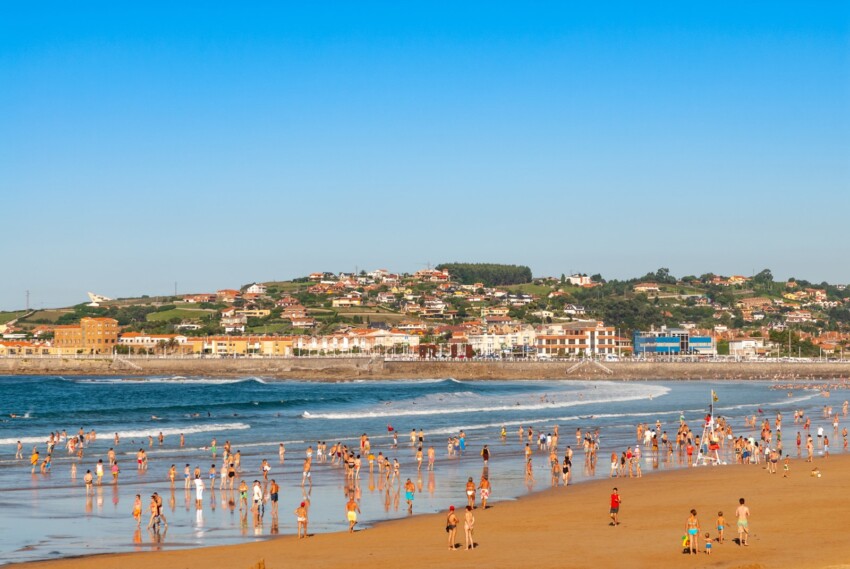
Gijón’s most famous beach is Playa de San Lorenzo, considered one of the most beautiful urban beaches in northern Spain. It is a wide, sandy beach, 1.5 km long, bordered by a stone wall and behind which there is a pleasant promenade. The beach alternates between equipped and free areas; in some more isolated spots there are rocks and coves.
Playa de San Lorenzo is always very busy during the summer months, both during the day and in the evening. The beach bars and restaurants behind it are popular meeting places for locals.
The other city beach in Gijón is Playa de Poniente: it is another sandy beach, somewhat smaller but wider and frequented mainly by sportsmen. The possibilities for water sports are numerous: sup, jet ski, surfing, kitesurfing, windsurfing… those who love active holidays will not be bored! At the end of August, the beach changes its face and becomes the location for the annual cider festival.
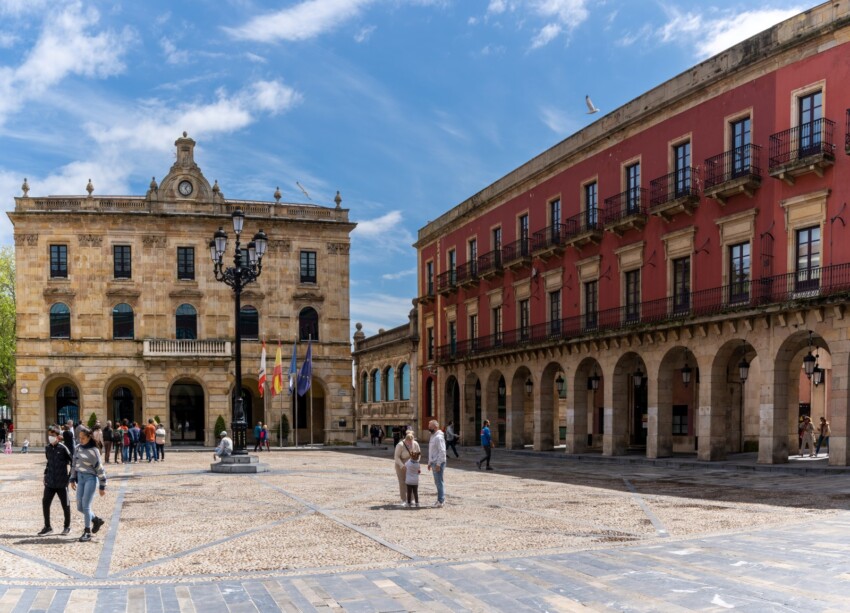
The ideal starting point for exploring the city of Gijón is Plaza Mayor, the main square, from which you can reach the beach and the marina in no time. It is a rectangular square with a single lamppost in the centre, dominated by the majestic City Hall building.
It cannot be called the most charming square in Spain, but it is a nerve centre of city life and the ideal place to sip a coffee and watch people go by. The cider houses on the northern corner of the square are very popular, perfect for trying the typical Asturian drink.
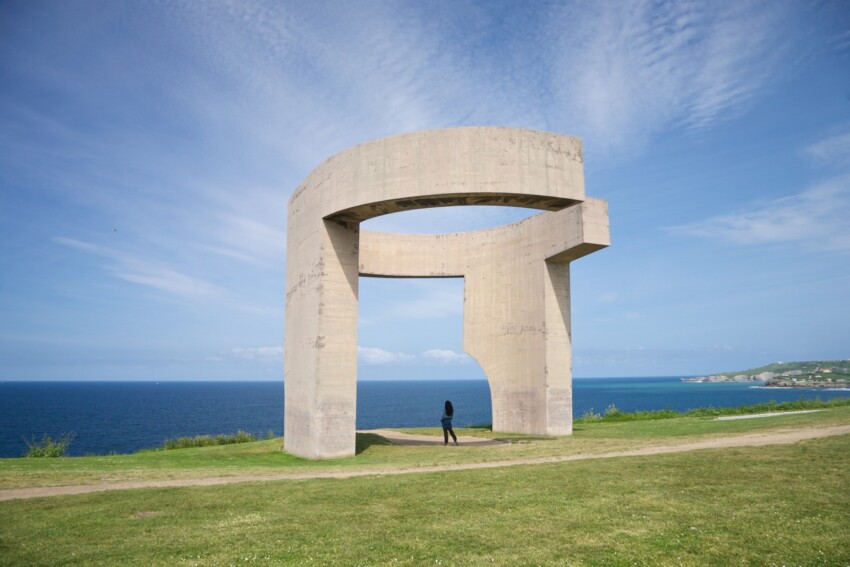
Gijón’s most famous attraction is an emblematic sculpture by Basque artist Eduardo Chillida called Elogio del Horizonte, located at the top of the Santa Catalina hill and reachable by a pleasant 5-minute walk from the historical centre.
Inaugurated in 1990, this imposing 10-metre-high construction comprises two pillars supporting an arch and symbolically represents a frame for admiring the horizon over the sea.
Some find it romantic and evocative, for others it is such a disgrace that the sculpture has earned itself an unsympathetic nickname, ‘King Kong’s toilet’. Go and see for yourself and decide who is right!
A museum not to be missed during a visit to Gijón is the Muséu del Pueblu d’ Asturies (Museum of the Asturian People), a small but well-kept ethnographic museum that will introduce you to Asturian culture and traditions.
You will discover a world quite different from the stereotypes about Spain: you will see reconstructions of some typical buildings of Asturian peasant life, such as grain warehouses and shepherds’ huts, and thematic exhibitions on cooking, bagpipes (the most traditional musical instrument), 19th century costumes and carriages.
The Atlantico Botanical Garden is the city’s green oasis, just 5 km from the centre: a perfect place to escape the heat and hustle and bustle. The garden has more than 2000 varieties of plants, most of them native to northern Spain and other coastal regions bordering the Atlantic.
Don’t miss the Island Garden, a historic garden more than 150 years old, and La Carbayeda El Tragamón, a magnificent forest with centuries-old trees that has been declared a natural monument.
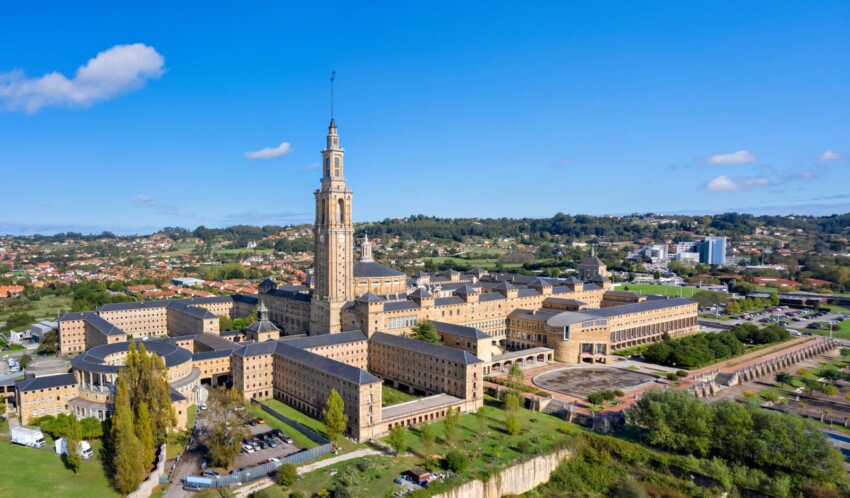
TheUniversidad Laboral is the largest building in Spain and a masterpiece of 20th century architecture. Built in the 1950s as a school town, it is now a vibrant cultural centre housing theatre, exhibition spaces and gardens. The building impresses with its monumentality and mix of architectural styles, from the classic central plaza to the 130-metre-high observation tower.
Guided tours allow visitors to discover the most significant spaces, including the imposing elliptical church and the classical theatre. The geometric gardens surrounding the complex provide the perfect space for a relaxing break.
The Termas Roman as represent an extraordinary testimony of the Roman presence in Gijón. This thermal complex from the 1st century A.D., perfectly preserved below street level, provides an insight into the importance of the city in Roman times. The archaeological museum built around the remains offers a multimedia tour that reconstructs daily life in the baths, showing the sophisticated heating system and the different rooms used for bathing.
The location of the baths, right next to the beach of San Lorenzo, made it possible to exploit sea water, and today this link with the sea continues to be visible through the museum’s large windows.
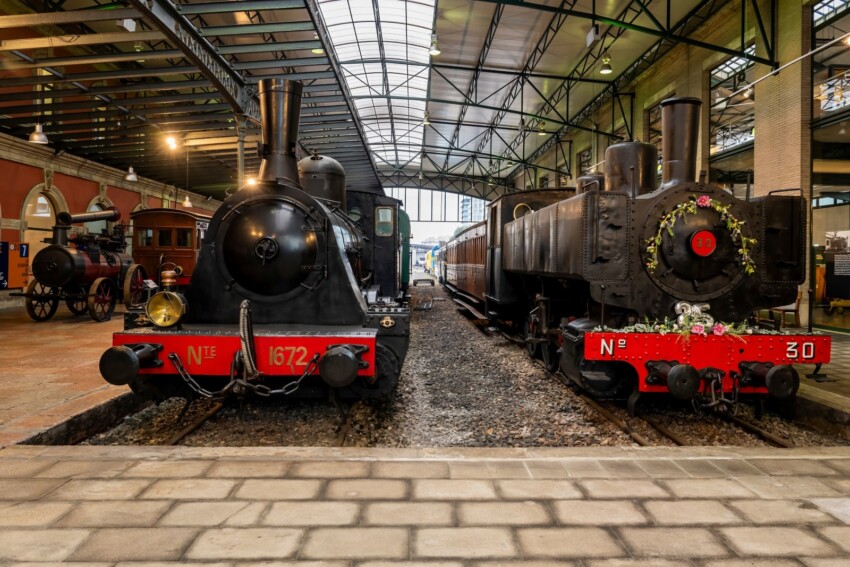
Housed in a former 19th century railway station, the Museum of Asturian Railways is a romantic excursion through 50 years of train travel within the region. On display are locomotives, carriages, reproductions, photos and historical documents with delightful vintage charm.
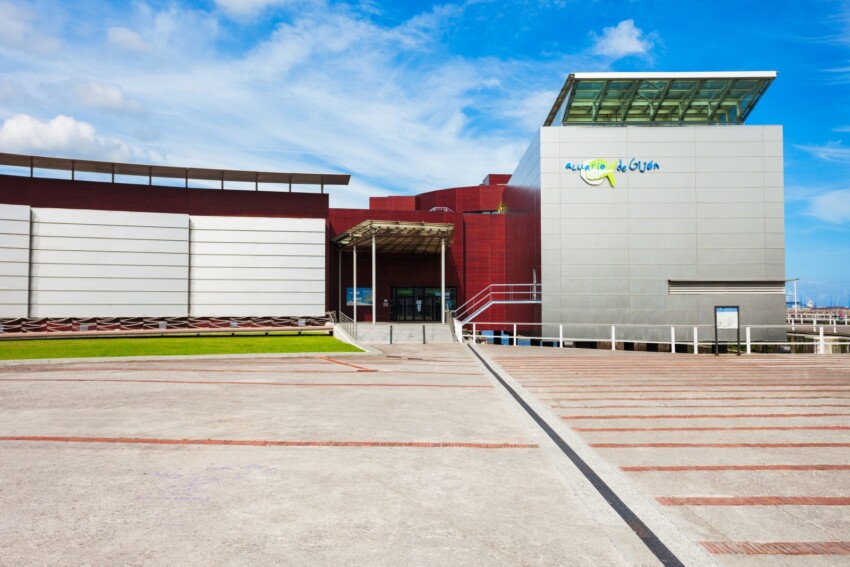
Perfect for a few hours of family fun or shelter from a sudden rain, the Gijón Aquarium will introduce you to the underworld with exciting visual (admiring the animals in the tanks, no less than 5,000 specimens of 400 different species) and tactile (touching live starfish) experiences.
The aquarium includes sections dedicated to very different aquatic worlds, from tropical oceans to the depths of the Cantabrian rivers.
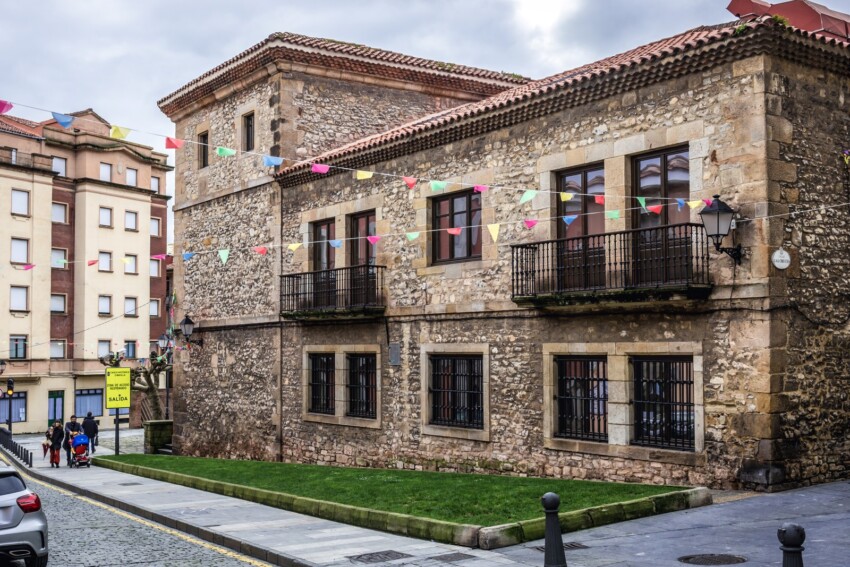
Another beautiful town square is Plaza Jovellanos, where the house-museum of the philosopher and politician Gaspar Melchor de Jovellanos is located. He lived at the turn of the 18th and 19th centuries and was a key figure of the Spanish Enlightenment.
The museum is housed in an elegant 18th-century building and has two floors, one entirely dedicated to the life of Jovellanos and one to Asturian artists of the 19th and 20th centuries.
In the following map you can see the location of the main places of interest mentioned in this article.
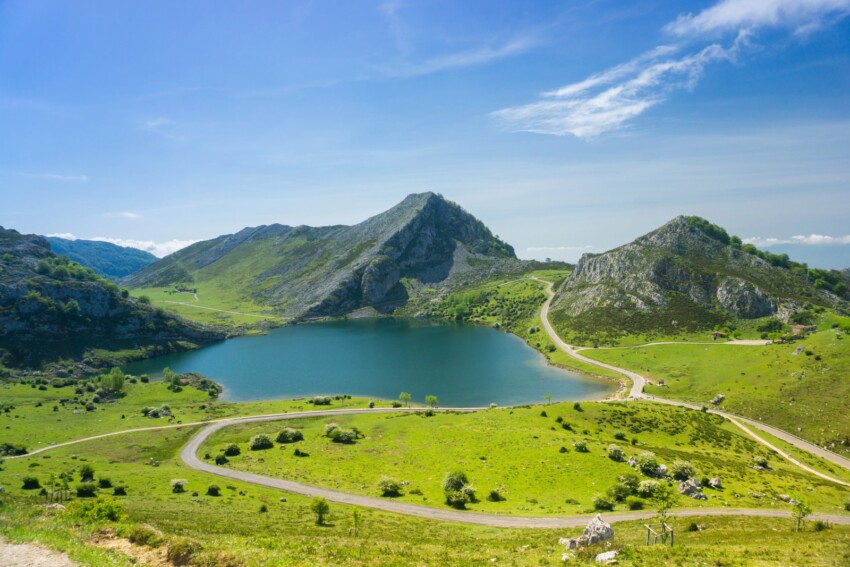
Asturias offers endless possibilities for day trips from Gijón. The region is famous for its spectacular landscapes ranging from the mountains to the sea, with small historical villages and natural parks. Renting a car is recommended to better explore the area and to reach places less accessible by public transport.
The capital of Asturias is only 30 km from Gijón and is definitely worth a visit. Its medieval historical centre, a UNESCO heritage site, is a jewel of pre-Romanesque architecture with the Cathedral of San Salvador as its focal point. The city is also famous for its many statues scattered around the centre and its lively cultural life. The gastronomic route between its restaurants and traditional sidrerias is an experience not to be missed.
About an hour and a half’s drive from Gijón, the Picos de Europa offer some of the most spectacular views in northern Spain. The park is perfect for hikes of varying levels of difficulty, with well-marked trails leading to mountain lakes and breathtaking peaks. The Fuente Dé cable car provides easy access to spectacular viewpoints.
The northernmost point in Asturias is located just 30 km from Gijón. This wild promontory offers spectacular views of the ocean, with a historic lighthouse and impressive cliffs. The area is ideal for nature walks and birdwatching, with several well-maintained coastal paths.
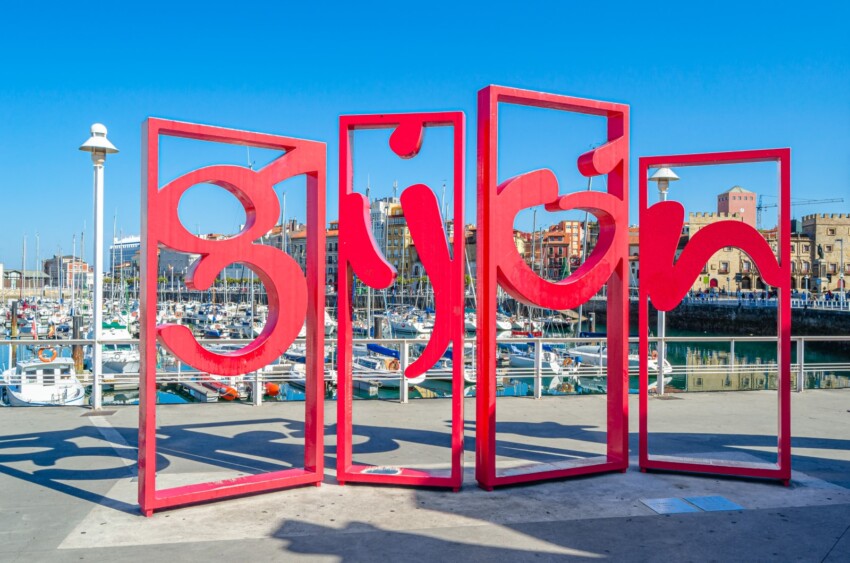
The choice of accommodation in Gijón is surprisingly wide, with solutions for all budgets. The district of Cimadevilla offers an authentic experience in the historical heart of the city, with boutique hotels in old fishermen’s houses and sea views. The romantic atmosphere and proximity to the main restaurants and cider houses make it perfect for couples.
The Playa de San Lorenzo area is ideal for families, with large flats overlooking the sea and easy access to the beach. The presence of numerous services, supermarkets and play areas makes it practical for stays with children. The city centre, around Plaza Mayor, is perfect for those seeking the convenience of being close to shops and public transport. This area offers a wide choice of hotels of all categories and provides easy access to both the beach and the historical quarter.
The closest international airport to Gijón is the small Asturias airport, also known as Oviedo Airport (although it is 50 km from the city), served by domestic flights and a few international flights, including Ryanair to and from Rome Fiumicino, and Volotea to and from Bergamo and Venice.
Alternatively, if flight options to Oviedo do not suit you, to reach Gijón you can fly to Madrid, to which there are many low-cost flights, and then take a bus or direct bus.
If you are already in northern Spain, you can get to Gijón by train or bus from Oviedo, Santander, Ridadesella, León and all the main towns in Asturias.
What's the weather at Gijón? Below are the temperatures and the weather forecast at Gijón for the next few days.
Gijón is located in Asturias, overlooking the north coast of Spain. It is the eastern vertex of a triangle that also includes the cities of Avilès and Oviedo.